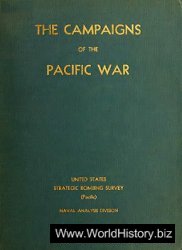Despite Alexander's reputation as the 'Tsar Liberator' of the serfs, it was clear by the 1860s that, for a significant section of the intelligentsia, especially the younger generation, his reforms were not enough. A minority of alienated intellectuals was beginning to gravitate towards radical solutions such as nihilism, populism and revolutionary socialism, and the regime's sole response to such radicalism was repression. In addition to the rise of what might be called the left-liberal opposition, however, dissatisfaction with tsarist rule was also increasingly taking the shape of what can only be termed an ethnic or Great Russian nationalism.
It is conventional to date the emergence of Russian nationalism from the period of the Crimean War, a humiliation which forced Russians to identify themselves vis-a-vis the outside world and which was qualitatively different from the largely religious and dynastic loyalties which had fired most Russians to resist Napoleon in 1812. Yet historians are also increasingly aware of the paradox of Russian nationalism in the nineteenth century. What did being Russian mean, in a multinational empire? Was an ethnic Russian nationalism impossible, because of the fact of empire, or was Russia, in Vera Tolz's phrase, a 'nation-state in the making'?6 And given that Russia was an autocracy, which rejected the participation even of Russians in the governance of the state, how could nationalism, an ideology whose founding premise was the sovereignty of the people, be tolerated by the tsars?
Some of the preoccupations of the Decembrists were early focal points for Russian nationalism: a sense of inferiority or hostility towards the West, but also a pride in Russia's separateness and resilience, coupled with an animus against the Empire's non-Russians. In the reign of Nicholas I the first coherent expression of Russian nationalism was the movement known as Slavophilism. The Slavophiles by definition exalted everything Slav, but especially Russia's pre-eminence in the Slav world. They held not only that Russia was unique and different from the West but that it was culturally and morally superior because of its Orthodox faith, which had ensured that Russians preserved a spiritual apartness. Like nationalists everywhere, Slavophiles such as the historian Mikhail Pogodin and the publicist Konstantin Aksakov stressed the deep historical roots of the Russian language and enthusiastically collected folklore. They also considered the Russian autocracy obtaining before Peter the Great to be a natural, indeed necessary, part of national character because the Russian people were unpolitical and did not want to rule themselves, trusting instead to the tsars to hold Russia together.
As an early variant of nationalism, it has to be admitted that Slavophilism was hardly a roaring success. Progressive-minded Russians, who hoped for political reform, denounced the Slavophiles as obscurantist apologists for reaction, while Nicholas I regarded them with suspicion, in part because their name implied a revolutionary desire to see all Slavs in the same state. Arrested in 1849, several Slavophiles talked themselves out of prison only by protesting the unpolitical nature of their goals. In reality the Slavophiles were not a threat to the autocracy; they shared many of the values of Uvarov's 'official nationality', including its hostility to the non-Russian nationalities of the Empire.
Something like a modern ethnic Russian nationalism appeared only with Pan-Slavism, a movement first articulated under the shock of the Crimean War. Pan-Slavism posited that all Slav peoples had a common cultural identity, despite the obvious differences of language and, in the case of West Slavs and some South Slavs, religion. More importantly, Pan-Slavists like the scientist Nikolai Danilevsky and the journalist Mikhail Katkov assigned leadership of this Slav community to Russia. The basis for this hegemony, as with the Slavophiles, was the innate superiority of Russian culture and the greatness of the Russian state.
As a means of buttressing Russia's international position, as well as rationalising its continuing domination of recalcitrant Slav peoples like the Poles, Pan-Slavism was essentially an apologia for Russian imperialism. It was often assumed by foreign observers that Pan-Slavism was the guiding force behind Russia's foreign policy, which it never was, although in the 1870s it did exert considerable influence on Alexander Il's reaction to the Balkan crisis. Yet at the heart of Pan-Slavism was something which set it on a collision course with the tsarist regime, which was precisely its appeal to the ideal of the nation. Unlike the Slavophiles, Pan-Slavists were highly critical of the autocracy, whose inefficiency and unaccountability, in their view, had produced the catastrophe of the Crimea. A truly national policy, for Pan-Slavists, must harness the energy of the people by involving their representatives in government, modernising the economy and the state, repressing the subject nationalities and wielding Russian power more forcefully abroad. Some of these aims coincided with those of the tsars, but the crucial ingredient of nationalism, the recruitment and involvement of the Russian people, was out of the question. The Russian autocracy saw nationalism as a threat and that included the nationalism of ethnic Russians.
I t is clear that Pan-Slavists assumed the existence of an ethnic Russian nation; what is less clear is the extent to which they equated this with the empire. According to David Rowley, Russian nationalism was by definition also imperialist, in that it accepted the Russian nation's 'mission' to dominate the peoples around it. Alexei Miller, by contrast, considers that 'the Russian project of nation-building, while expansionist, was not aimed at encompassing the whole empire and all its subjects'.7 In other words, Russians were capable of making distinctions between different ethnicities within the empire and did not aim at turning all subjects into ethnic Russians. However this might be — and the evidence as to how ethnic Russians imagined their national community is problematical — the contradiction between imperial Russia and national Russia remained and is arguably a problem for Russian governments to this day.




 World History
World History









